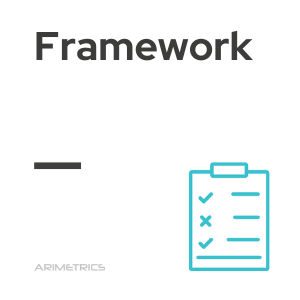
Definition:
A framework is a framework or scheme of work generally used by programmers to perform software development. Using a framework allows you to streamline development processes as it avoids having to write code repetitively, ensures good practices and code consistency.
A framework is therefore a set of tools and modules that can be reused for various projects. One of the most well-known and used frameworks is the Microsoft .NET Framework for websites.
Advantages of Frameworks
Among the advantages of using a framework for software development we distinguish:
- The programmer saves time since he already has the skeleton on which to develop an application.
- It facilitates collaborative developments, by leaving programming standards defined.
- Being widespread, it is easier to find tools, modules and information to use it.
- It provides greater security, having a large part of the potential vulnerabilities resolved.
- There is usually a community behind it, a set of developers who can help answer queries.
Framework Examples
Here are some of the most well-known frameworks:
- Net is Microsoft Framework and one of the most used.
- Symphony: PHP free software project.
- Zend Framework: Open source framework for developing web applications and with PHP web services.
- Laravel. One of the easiest open source frameworks to assimilate for PHP.
- Django: open source web development framework written in Python.
- Ruby on Rails: Open source web application framework written in the Ruby programming language.
- Angular: open source framework developed in TypeScript and maintained by Google.
